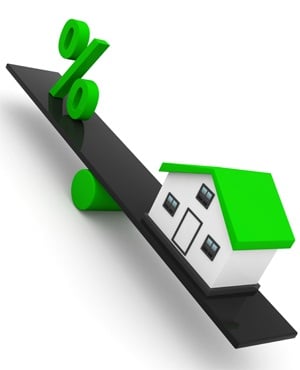
Cape Town - The South African Reserve Bank's decision to keep the repo rate unchanged on 5.75% (prime rate 9.25%) does not necessarily imply the interest rate hiking cycle is over, warned Sanlam Investments economist Arthur Kamp.
While interest rates remain low, economists and debt experts advised consumers to pay off their debt quicker. Anything extra you pay into your home loan account will trim off interest and shave off years on the repayment term.But with the 75 basis points increase already in the prime lending rate since January this year and analysts predicting further interest rate hikes even if only as early as the second quarter of next year, many people are asking whether they should fix the interest rate on their bond repayments.
With any financial decision, there are benefits and risks.
“There are many benefits to fixing your interest rates, but nothing in life is free, so of course, there are also drawbacks,” said Kay Geldenhuys, the manager of property finance processing at bond originator ooba.
“The most important thing about any financial decision is making sure that you have all the facts before you make your mind up.”
What you need to know about fixing the interest rate:
The argument for fixing your rate
The interest rate has a massive effect on the total amount that you end up repaying on your bond.
For example, on a R1 000 000 bond, at a 9.25% interest rate, your monthly repayments over 20 years will be R9 158, and the total you’ll pay back will be R2 198 080.
However, if the interest rate is 9.75%, your monthly repayment will be R9 485, and your total repayment over 20 years will be R2 276 440.
That’s a total difference of R78 360. So, it’s obvious that even a small shift in the interest rate can end up costing home owners a lot of money.
“Because of this and if market conditions seem to suggest that there will be further interest rate increases, it starts to make sense to fix your interest rates at the still current favourable rate, said Geldenhuys.
This also allows you to budget for what is most likely your biggest monthly expense with certainty that it won’t vary over a specific time frame.
Households on very tight budgets with little potential income growth could benefit in the long term from fixing their home loan rate.
And, if you are entering into the market for the first time, the fixing of your rate could be a sensible option as it will provide you with protection from rate increases in the future.
Banks usually allow a rate to be fixed for a period of between one to five years after which a new fixed rate can be negotiated.
It’s also important to be aware that you can only fix the interest rate on a bond that has already been registered and that your repayment history must be clean.
The argument against fixing your interest rate:
This all sounds very appealing, raising the question: Why wouldn’t you fix your interest rate, then?
The answer is simple. Banks have to hedge their own risk in allowing you to fix your rate.
So, when they allow you to fix, it will be at a rate higher than the rate you are currently paying.
“If you are currently paying prime minus 1%, your rate might be fixed at prime or even prime plus, which means that you’d be losing out on the benefits until the next rate hike anyway,” said Geldenhuys.
Also, once fixed you are locked in for up to five years and anything can happen in that time. Should interest rates come down in this time, you could lose out on the benefit of much lower interest rates than your fixed rate.
The trick to interest rate fixing:
The trick to interest rate fixing, therefore, is taking the long view.
If you believe the interest rate will go up and then continue to go up, then it’s worth taking the short-term increase for the longer-term benefits.
Of course, if the interest rate were to go down, those on a fixed rate would miss out on the benefit of the decrease.
“Right now, we are in an upward interest rate cycle. Home owners should thus conduct a sensitivity analysis on what interest rate increase they are able to absorb," advised Geldenhuys.
She said a careful assessment with a professional advisor and the comparison of options will verify if a home owner will benefit from a fixed rate.
“To sum up, if it will give you peace of mind to be able to budget your repayments at a fixed rate into the future, then it’s a good time to fix,” said Geldenhuys.
“On the other hand, if you would like to continue to benefit from the current rate for as long as possible, and believe that the interest rate might come down in the longer term, then it’s best to wait it out.”
- Fin24
Add your voice to our Property Issue:
* Write a guest post
* Share a personal story
* Ask the experts




 Publications
Publications
 Partners
Partners











